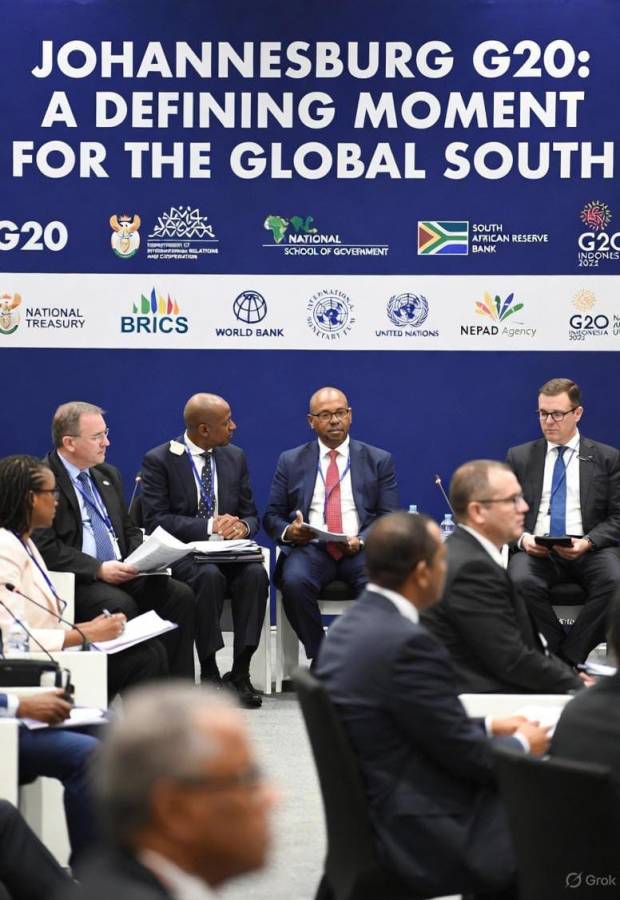
The G20 Summit held in Johannesburg, South Africa, has emerged as a powerful moment for the Global South. It is the first time the summit has been hosted on African soil since the forum began in 2008. This single fact gives the event a historic character, yet its significance goes much further. The Johannesburg summit has carried forward the ideas and vision that India promoted during its presidency in 2023. At the same time, it has validated a growing understanding that the world is moving toward a more balanced global order where developing nations are no longer silent observers. They are becoming active contributors with their own agendas and priorities.
A central theme of the summit was the clear push to highlight the concerns of the Global South. The discussions showed that the group is now willing to rethink global development priorities. India’s advocacy for stronger financial support to tackle the climate crisis received considerable attention. This appeal does not come in isolation. It reflects a wider understanding that poorer nations bear a heavier burden from climate-related disasters even though they contribute far less to carbon emissions.
India’s prime minister presented six initiatives at the summit. These initiatives become even more meaningful when viewed in the context of the philosophy called Integral Humanism. This idea is linked with Deendayal Upadhyaya, who was an early ideological guide of the Jana Sangh, which later became the Bharatiya Janata Party. Integral Humanism promotes balanced development that respects both individual needs and societal welfare. Within this framework, India pushed for new ways of thinking about economic progress. The richer countries of the Global North often push for development pathways that may not suit the realities of poorer nations. The new proposals call for an agenda that promotes equal access to resources and technological tools. They also aim to place human welfare at the center of global cooperation.
A number of proposals stood out during the summit. The idea of a global health response team was welcomed, especially after the lessons of the pandemic. The focus on a circular economy for minerals highlighted how essential critical minerals have become for modern technology. Another important theme was open satellite data partnerships. Such partnerships can help countries monitor agriculture, track environmental changes, and prepare better for natural disasters. All these proposals have the potential to strengthen cooperation within the Global South. They also offer a path toward a more equal international system.
India also pressed for a global agreement that condemns terrorism in every form. This message was reaffirmed strongly in Johannesburg. Along with this, the Africa Skills Multiplier Initiative received appreciation. It aims to help African nations build stronger workforces and develop the skills needed to engage confidently in global markets. This step supports Africa’s efforts to work more actively with the world.
The summit also saw an unexpected break from tradition. The leaders released their main statement at the beginning of the event instead of at the end. This move was intended to show clarity of purpose. It was also meant to send a message that the priorities set in Johannesburg should guide discussions even beyond the summit. The United States did not participate because it accused South Africa of racial discrimination against white Afrikaners. This issue links back to memories of apartheid which lasted for several decades. With the 2026 summit planned to be held in Miami, the reaction of the United States will be closely watched. The new message from Johannesburg suggests that Washington may risk losing influence if it chooses to oppose or weaken the goals set by the Global South.
India, South Africa, and other developing nations have made it clear that the world is moving toward a new balance of power. The age of unquestioned dominance by any single group of wealthy nations is slowly fading. The desire for a fairer and more inclusive global system is rising from countries that were once seen as peripheral. The South African G20 has reinforced this shift. It shows that the future of global cooperation will be shaped not only by powerful nations but also by the collective strength and vision of the Global South.





















